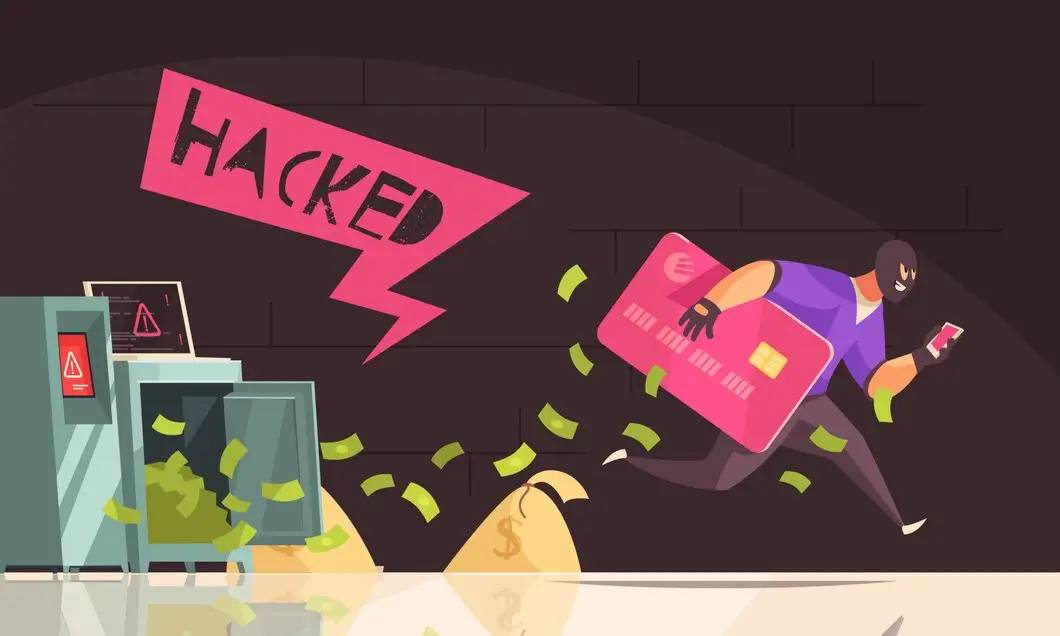Payment Systems and Their Popularity
Modern technology has significantly changed the way we conduct financial transactions. Payment systems like PayPal, Qiwi, Yandex.Money, and many others have become an integral part of everyday life. They allow for quick and convenient transactions, payment for goods and services, and money transfers to loved ones. But with the growing popularity of online wallets, the number of cybercrimes is also increasing.
Advantages of Online Wallets
Online wallets offer a number of advantages, including:
- Ease of use: the ability to make transactions 24/7 from any device.
- Transaction speed: instant transfers and payment for goods/services.
- Global accessibility: the ability to use it anywhere in the world.
- Diverse features: integration with other services, expense, and income tracking, etc.
Risks Associated with Using Payment Systems
Despite all the advantages, payment systems are associated with certain risks. The main ones are:
- Fraud — cybercriminals invent increasingly sophisticated ways to steal funds.
- Privacy issues — personal data leaks can lead to financial losses.
- Technical failures — temporary access problems to the account can cause inconvenience.
How to Protect Yourself from Scammers in Payment Systems
Signs of Fraud in Payment Systems
To protect your finances, you need to be able to recognize signs of fraud:
- Suspicious emails and messages: phishing attacks often disguise themselves as legitimate emails from payment systems.
- Requests for personal information: no reputable system will ask for your password or PIN code.
- Unexpected transactions: any deduction of funds without your knowledge should raise concerns.
Security Tips for Online Wallets
- Use strong passwords: combine uppercase and lowercase letters, numbers, and symbols.
- Activate two-factor authentication (2FA): an additional level of protection requiring identity confirmation via SMS or an app.
- Regularly update software: outdated app versions may contain vulnerabilities.
- Connect to payment systems only through secure networks: avoid using public Wi-Fi for financial transactions.
- Check website URLs: make sure you are on the official site of the payment system.
How Not to Fall Victim to Online Wallet Scams
Attention to detail and following simple rules can help you not fall victim to scammers:
- Do not trust strangers: never transfer money to accounts of unknown people, even if they promise a return with profit.
- Check apps and services: download programs only from official sources and check reviews.
- Be cautious with public computers: if there is no choice, do not save passwords and do not leave sessions open.
Fraud Schemes to Watch Out For
Phishing
Phishing — is a method of deception in which attackers try to extract confidential information from you. For example, you may receive an email, allegedly from your payment system, asking you to update personal data.
Vishing and Smishing
These fraud methods are based on phone calls and text messages, respectively. Scammers may pose as bank or security service employees and demand your account data.
Social Media Traps
Social networks have also become a field of activity for scammers. Be cautious of suspicious messages and links that may lead to fake sites.
How Scammers Operate in Payment Systems
Attack Methods
Scammers use various methods to achieve their goals. Among them:
- Social engineering: manipulation to extract information.
- Malware: programs that can be quietly installed on your device to steal data.
- Data interception: using special programs to capture data transmitted over the internet.
Fraud Prevention
- Education and awareness: regularly update your knowledge about fraud methods.
- Activity monitoring: keep track of all transactions on your account.
- Transaction notifications: enable alerts for every operation.
Online Wallets and Financial Security
The Role of Banks and Payment Systems in Data Protection
Banks and payment systems implement numerous measures to protect user data:
- Data encryption: transmitting data in encrypted form for protection.
- Behavior analysis: using technology to detect unusual activity.
- Support services: assisting users in case of suspicious activity.
User Participation in Ensuring Security
Users play a key role in protecting their data. They must be vigilant and take active measures to prevent fraud:
- Follow security recommendations: adhere to tips provided by your payment system.
- Do not ignore suspicious actions: immediately report any suspicious transactions to support.
- Be vigilant: carefully check every transaction and document.
Conclusion
Security in the online space — is a joint responsibility of users and companies providing payment services. It is important to be aware of current threats, follow basic safety rules, and not fall for scam tricks. Only in this way can you protect your financial assets and personal data from cybercriminals.
